On Home and Other Gifts – A Visit to the Mercouri Estate
August 31, 2016
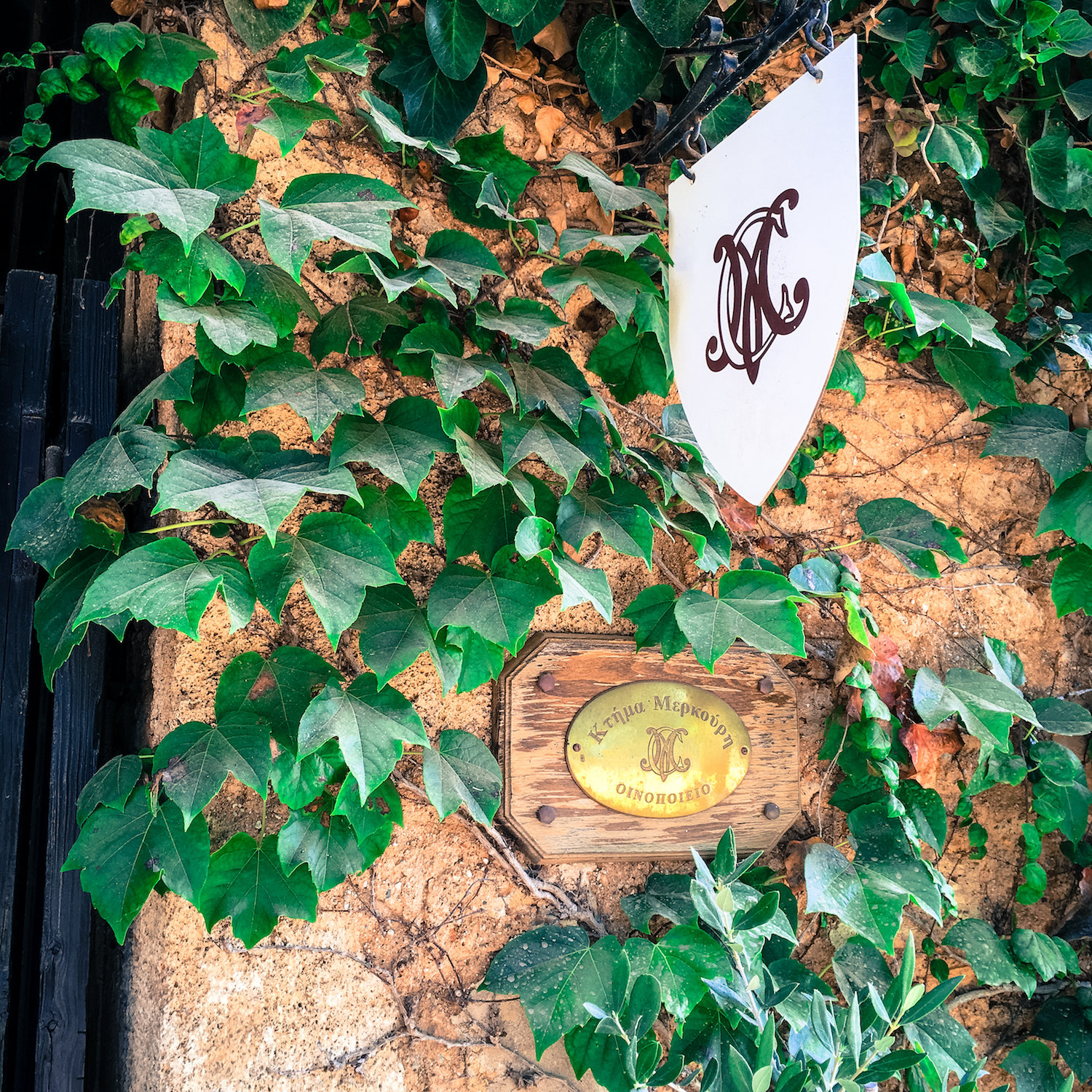
Mainland Greece is dusty, like a sucked out sponge bristled with underbrush and spindly trees. There’s the whirr of cicadas screeching a constant soundtrack and the hot sun that broils the land and people on it with impunity. Olive groves shudder up from their sun-soaked torpor with the shake of an invisible breeze. Their silvery leaves are thick and strong, like hammered metal sheened in blowsy earth. Grape vines slither up stalks, their leaves looking wilted in this heat – but the clusters of grapes are crowded and plump like overperfect plastic fruit.
We are boat people, spilling out the mouths of our luxury cruise liners and crowding the tiny port towns for mere hours. We breeze along the rows of shops, buying linens and gold jewelry to take home as proof of our having been away. When you’re a boat person, it’s hard to imagine what it’s like to be on the other side. All you know is the heat and press of people, the frantic crush to buy a few souvenirs and snap pictures of the shattered vases in the local archaeology museum. But I remember what it was like to be in Stavanger, Norway when the boat people came. All week, the town felt sleepy and small, lethargic with its slowly chugging ferries and stone-paved streets arbored with flowers. One morning, there they were, Germans mostly, flocked into the little shops and even smaller streets. It felt like another city, a many-headed hydra roused and ready to devour you in any of its maws.
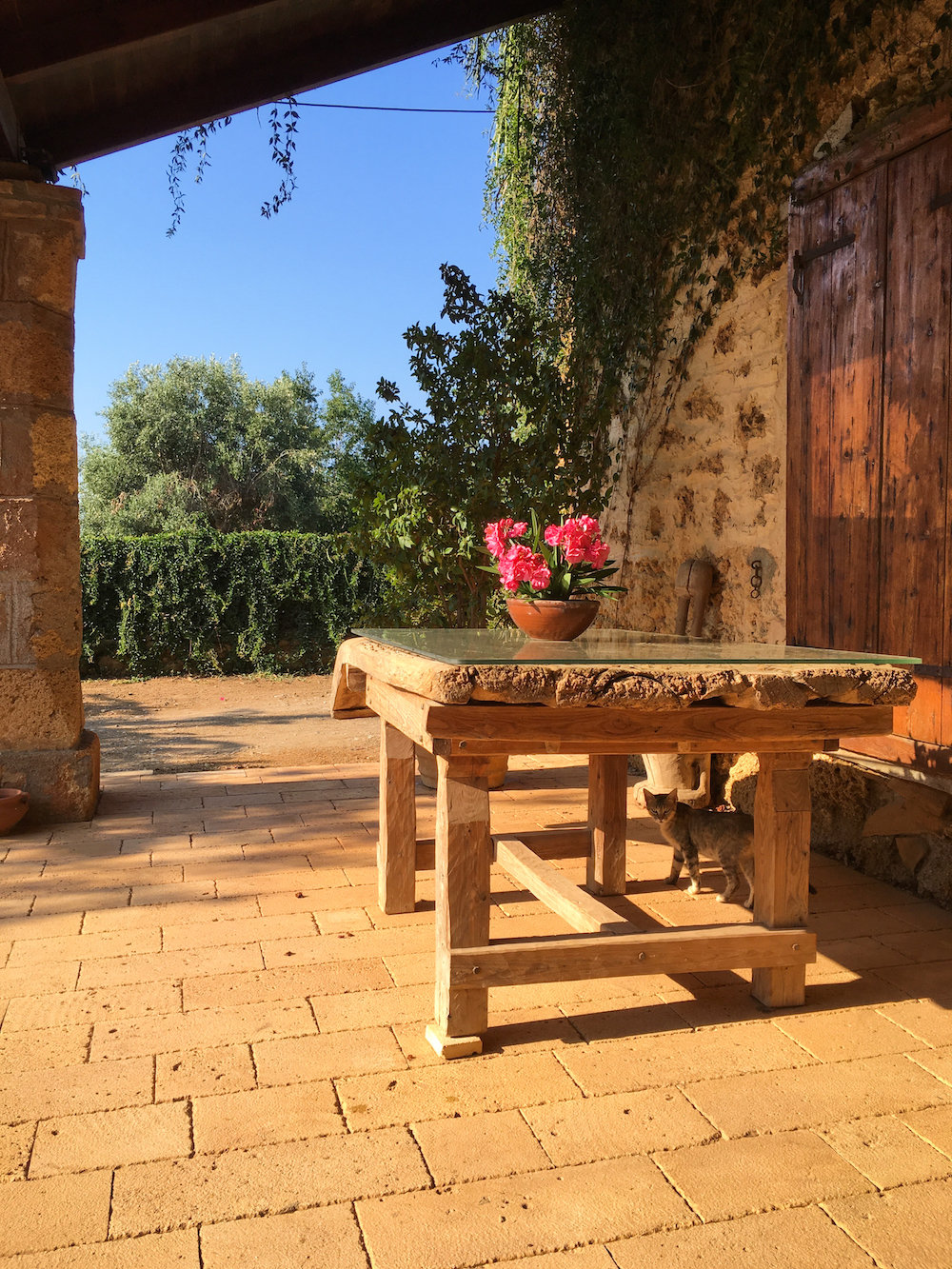
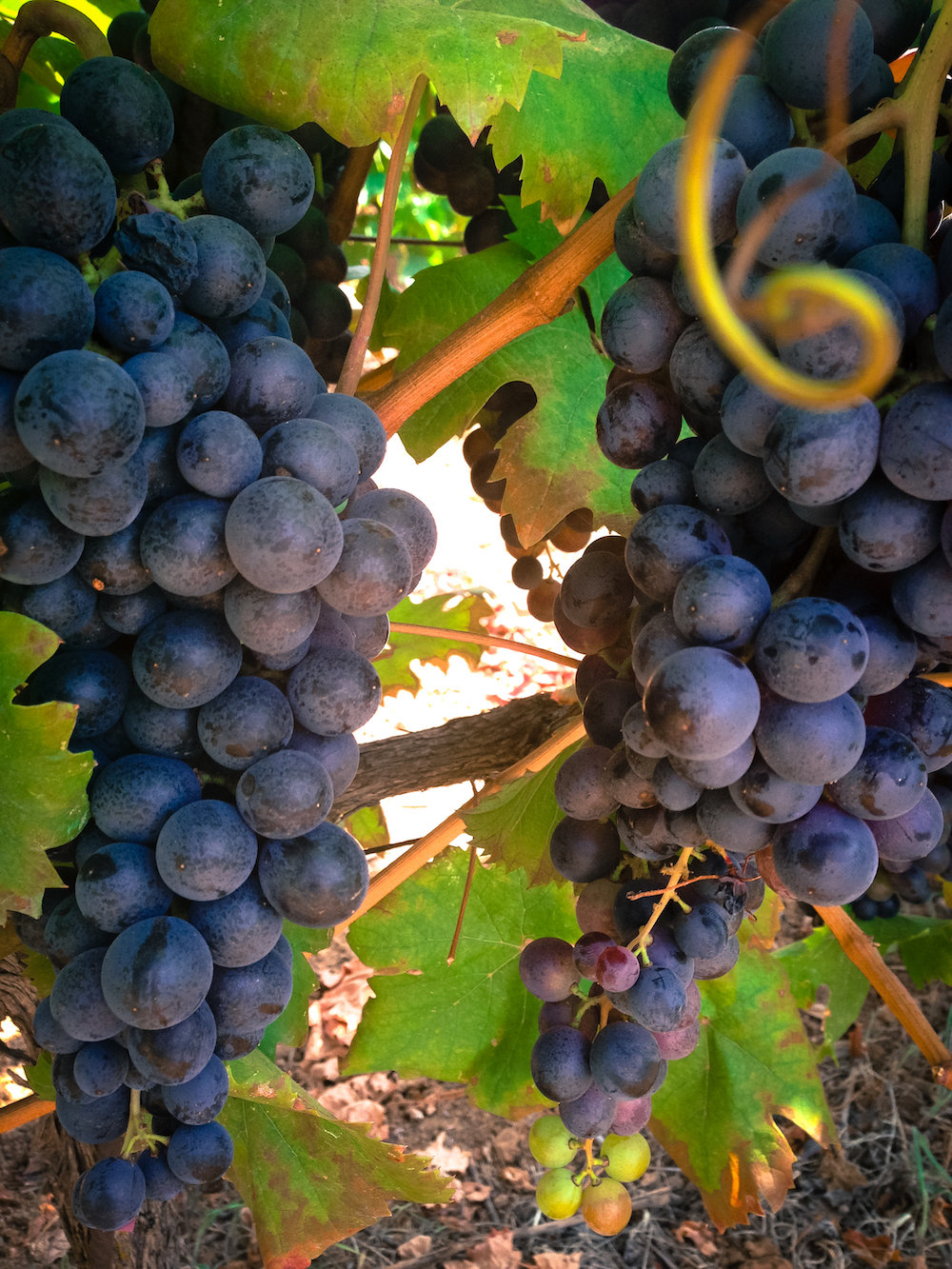
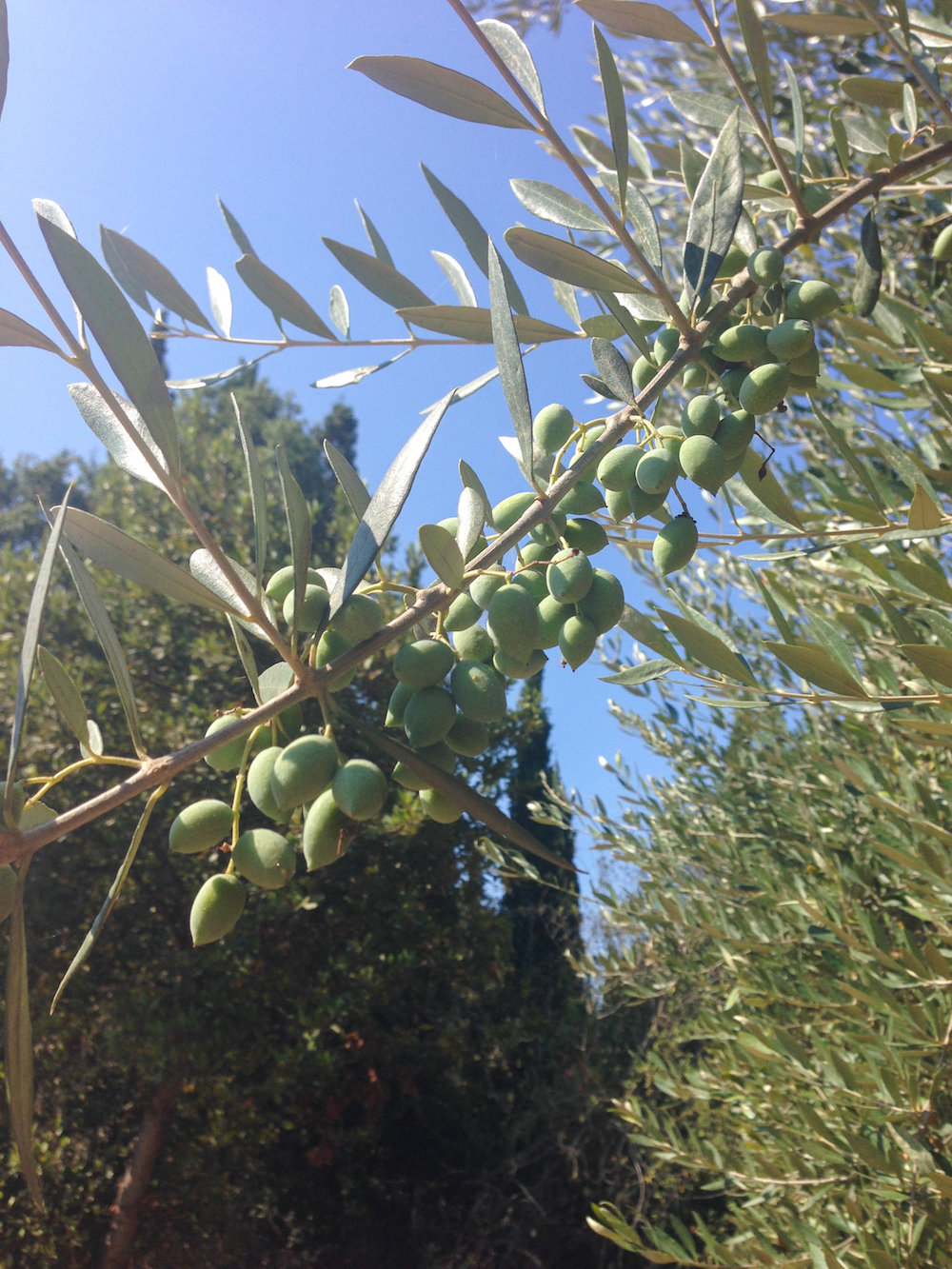
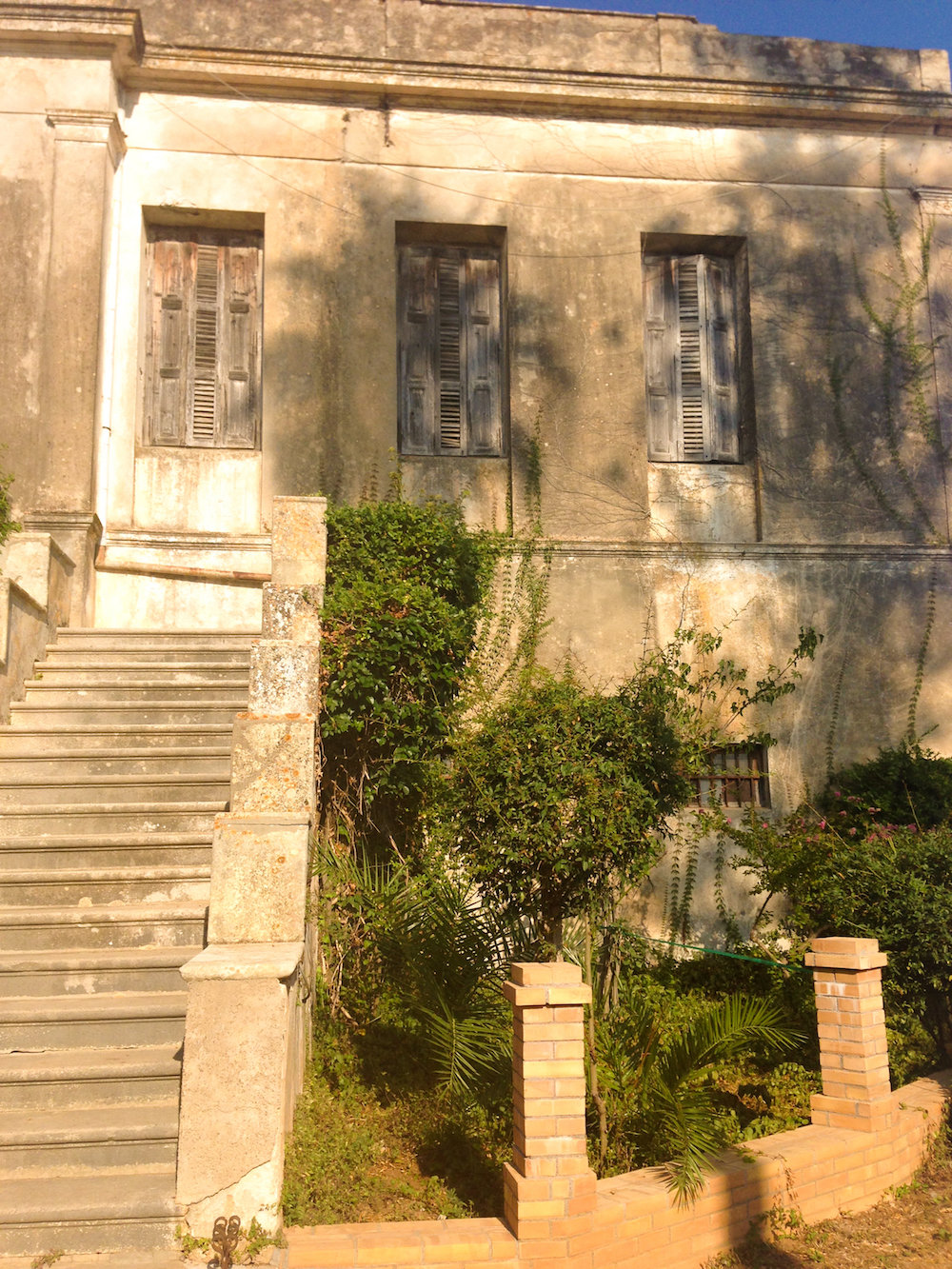
Here in Greece, we don’t know any better, so we just do the best we can. We try not to shove and we wait our turn in line to photograph the shards of vases and buy our linens and shrink-wrapped bags of olives and souvlaki spice. We seek out the quiet corners and shirk the brutal sunshine, and after a few hours, we meekly herd ourselves back to the cool and spacious boat where we have our little routines: dressing for dinner and sneaking in episodes of Downton Abbey, playing happy hour trivia and a round of cards as the boat takes off from port.
Every now and then, we manage to transcend our boat people selves in moments where we glimpse real lives; we walk through small doorways into something true that exists even when we’re gone.
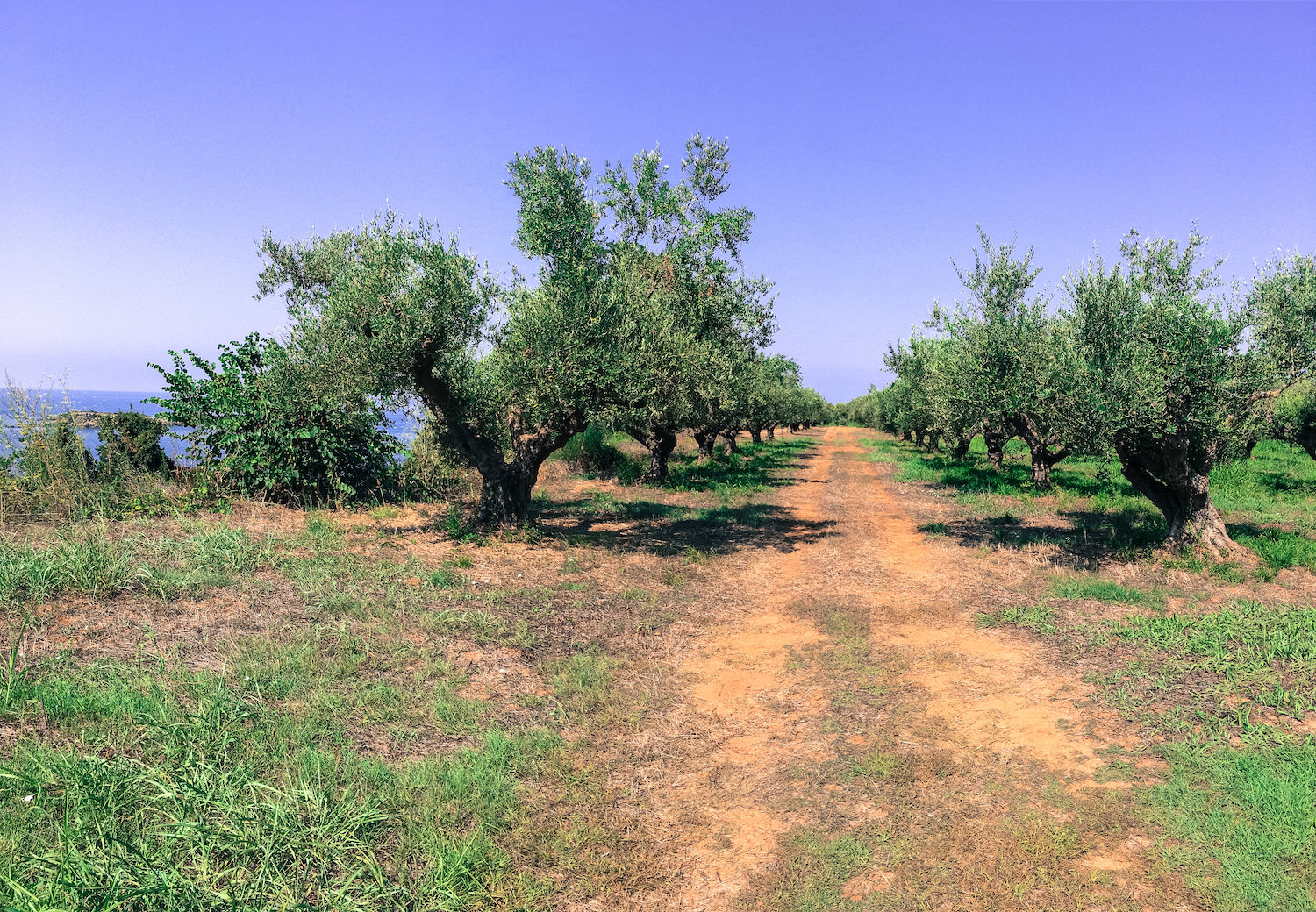


My grandfather had advised us to skip Ancient Olympia – “it’s just a lot of ruined columns” – and we had seen so many ruined columns travelling through inland Greece last summer. So instead, when we docked at the port of Katakolo in the Western Peloponnese, we booked a vineyard tour at the Mercouri Estate, a family-owned farm established in 1864 and still in operation today.
There were six people on our tour – my mother, brother, and myself making up half the group. My grandfather had stayed behind on the boat to rest. He’d been to Katakolo before and wasn’t keen on slinking through a torturous row of dress shops in the heat. We were surprised at the group’s small size, though not disappointed. An intimate tour is always the best kind.
The bus ride to the farm took a dusty, winding road, with mopeds and small cars squeezing past at every turn. Already on the first slow sweep up, there were fickle vines and bougainvillea in full and brilliant bloom. The entrance to the farm was lined with rose bushes – to protect the vines, we learned. Should disease or blight be on the way, the rose bushes would be struck before the grapes, so action could be taken to save the precious crop.
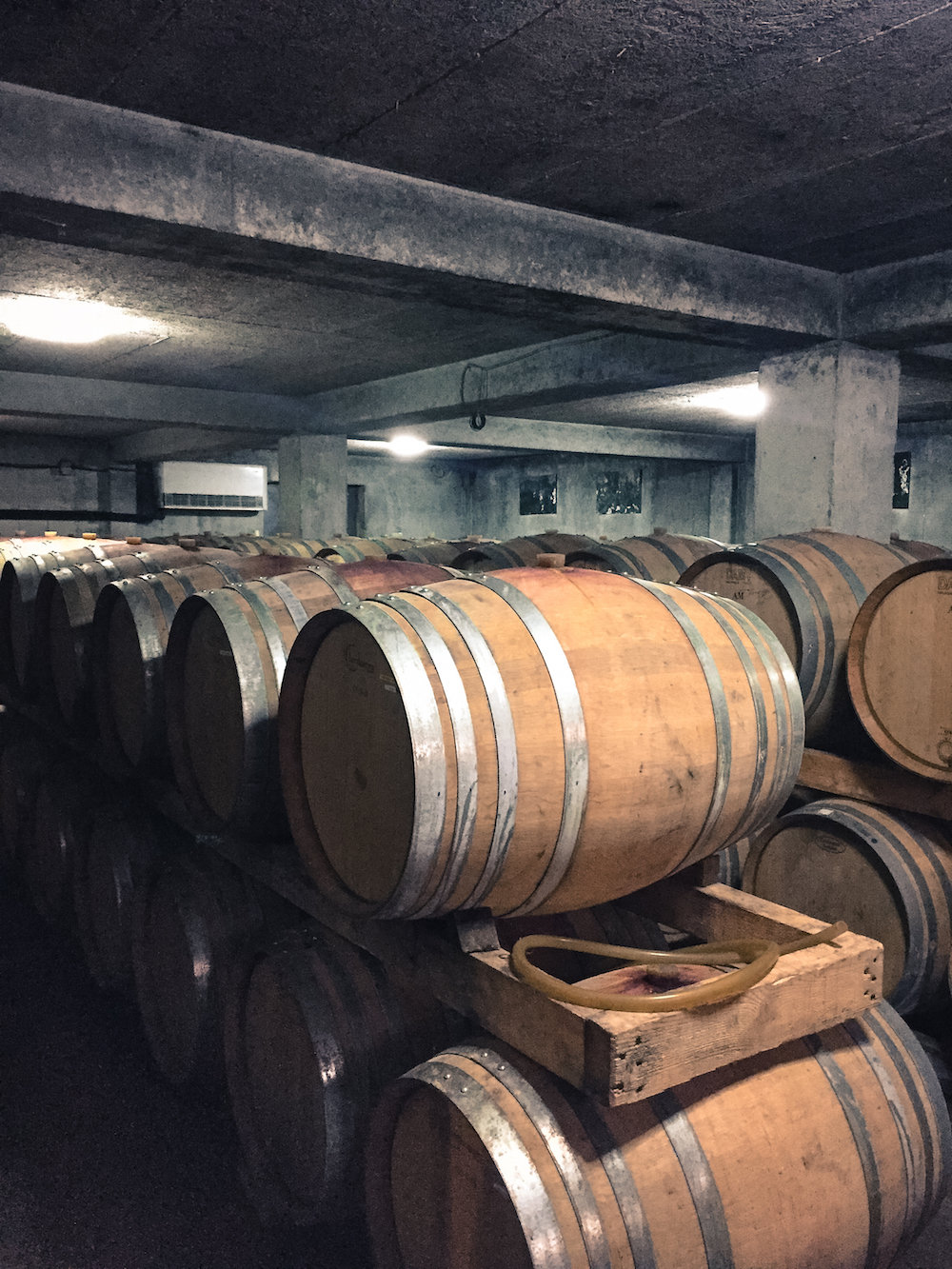
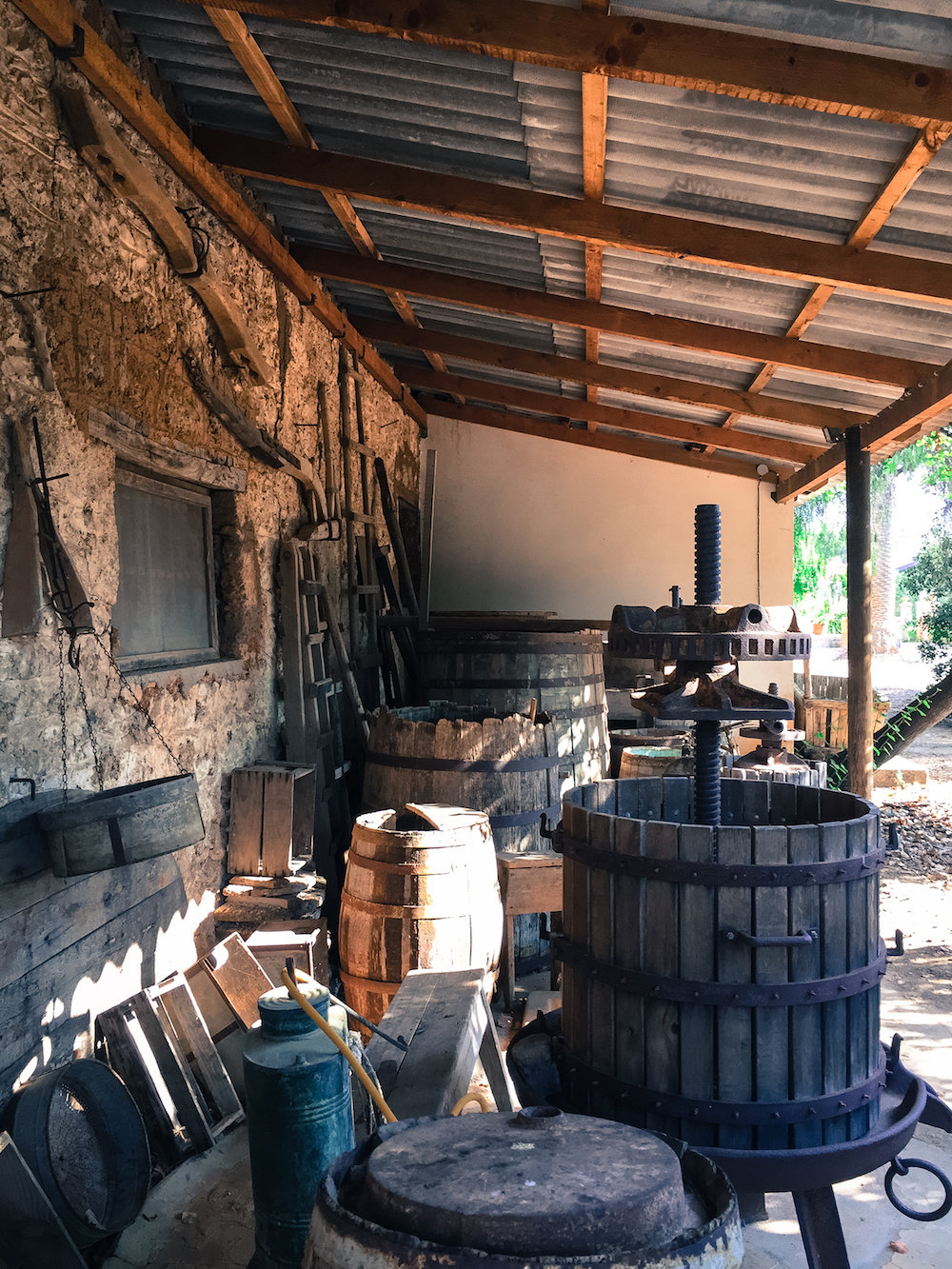
As we filed off the bus, we were greeted with coffee in a paper cup and a small sweet cookie. Cats dozed in the sun – one lucky kitten sporting a thin collar seemed to gloat his fat, silky body over the other, thinner felines mewling at our feet. We walked through the museum, a hodgepodge of old equipment and wooden frames. In this bay were materials for making wine, here for raisins, here for grain, here for horses. On the grounds, we saw the peacocks and scouted the ground for pearlescent flared feathers to take home. It was all very fine, and nice to be away from the ship, but it wasn’t until we were walked around the corner that the experience became a story.
There, in the shade of the old, swollen trees, were two picnic tables laid out with simple fare. A bottle of red and a bottle of white, fat drops of perspiration beading in the heat. There was a plate of feta softly drizzled with olive oil and oregano, slips of sheep’s milk cheese and cherry tomatoes, slices of cucumber, and salami. There was a basket of bread, and best of all, a dish of home-cured olives with plump and fragrant flesh.
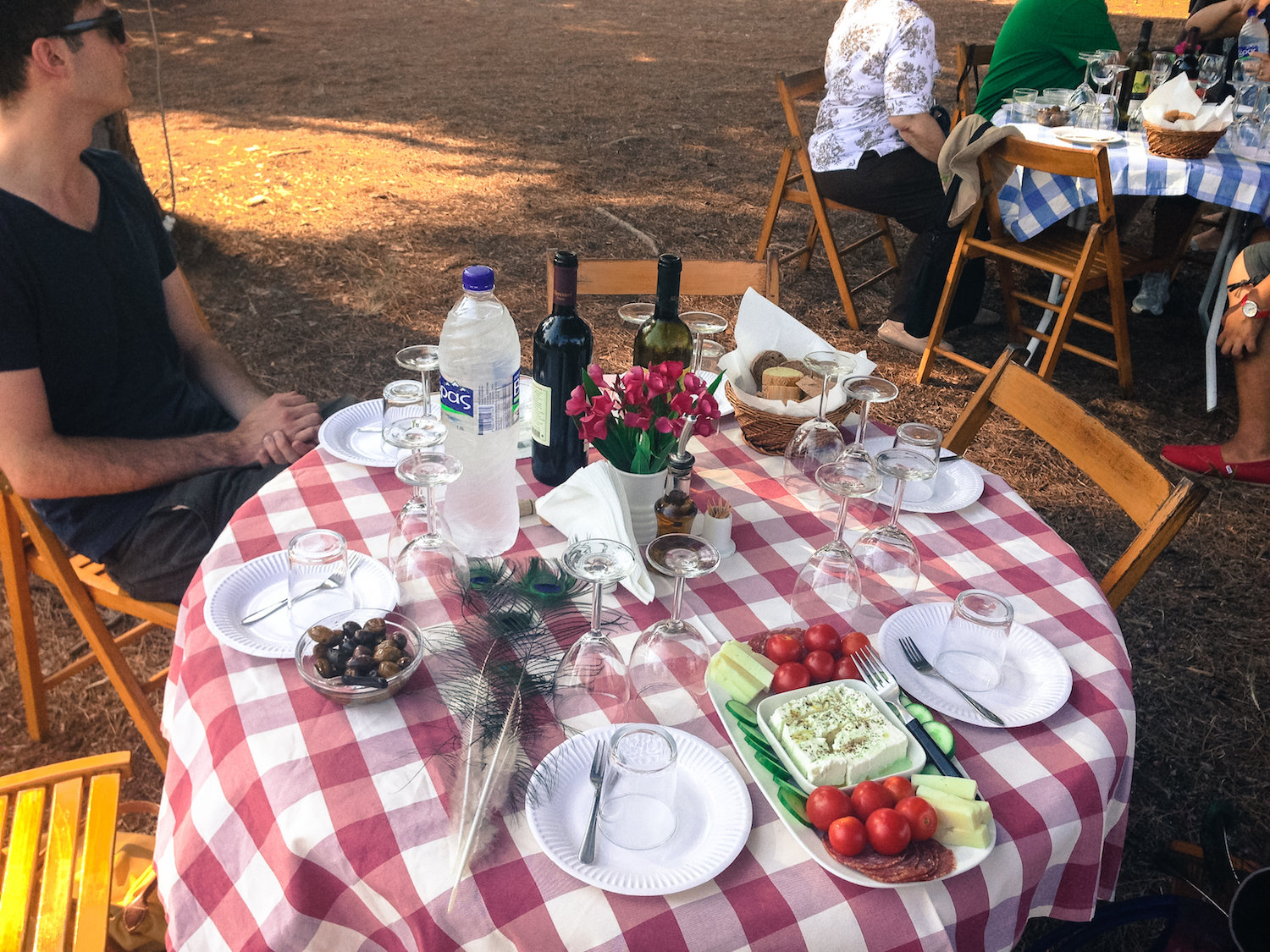
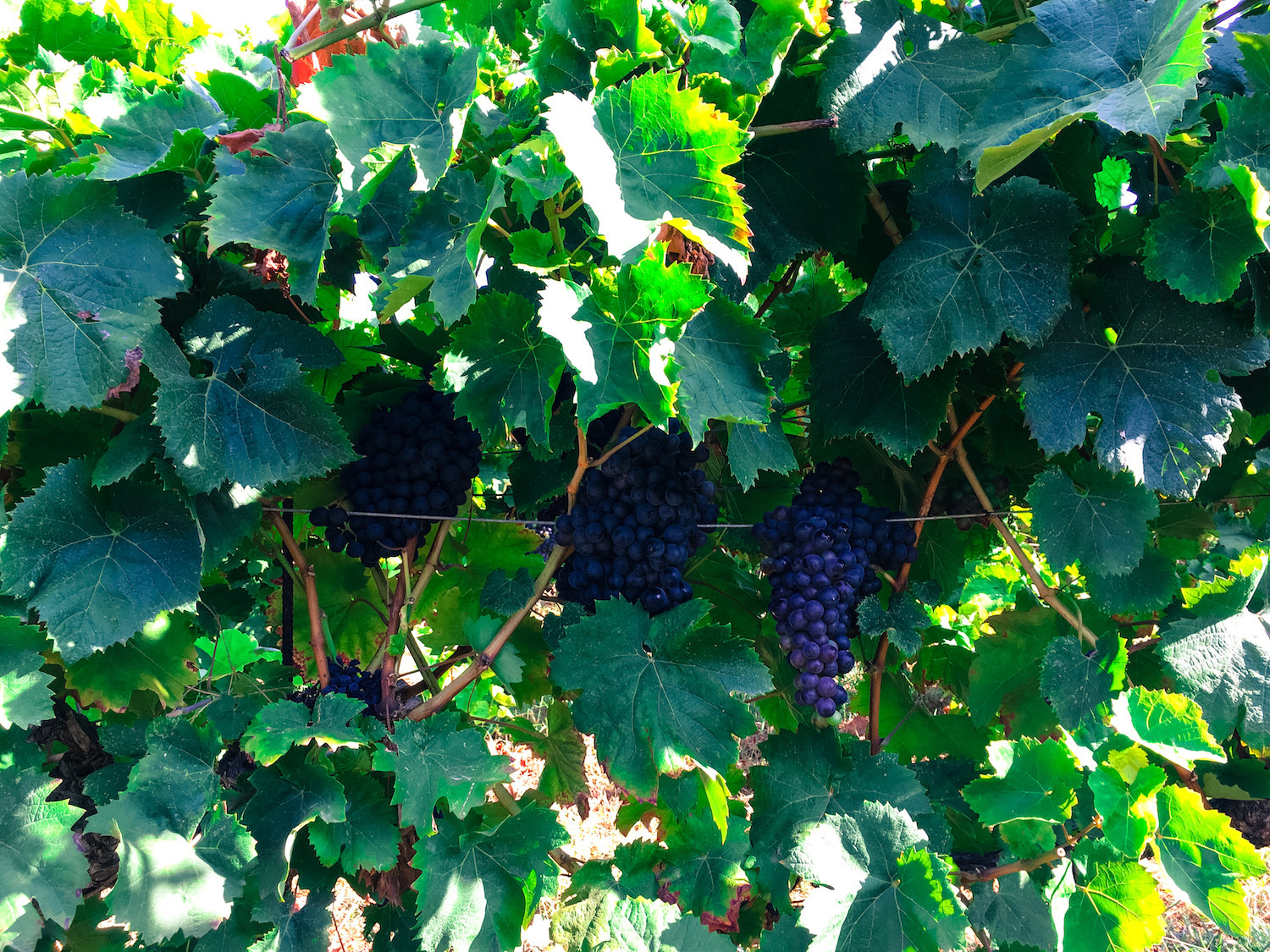
It was a pleasant surprise, beyond what we’d been promised on the boat. We slid into the wooden chairs, and started in on this second breakfast. The little cats had followed us, and I gave them names, lightly, the way a traveler might note unknown landmarks on her route.
While we were sitting and eating, sipping first the white and then the red, we were approached by a man in work clothes. His olive-colored shirt and white pants were dusty, as if he had just come from pruning vines under the hot sun. He asked about the wines and the olives, and we struck up a pleasant conversation. He was one of the brothers who owned and ran the estate, a fourth generation Mercouri to yield gifts from the soil. He loved the land, but it was a hard life, he said, there was always work to do, and managing a big estate was never easy. As he spoke, he shrugged his hands, strong and well-worn and tanned from the sun.
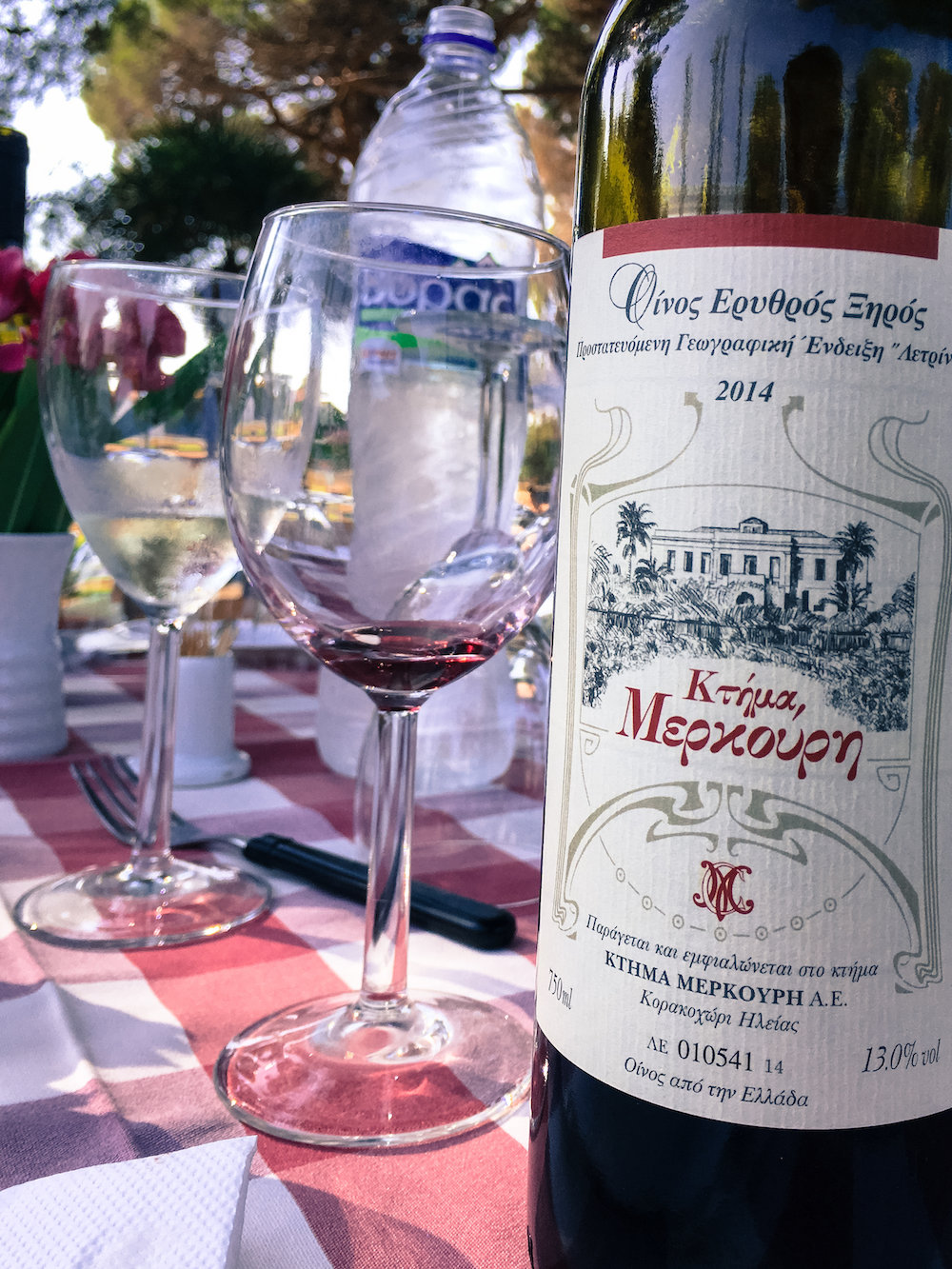
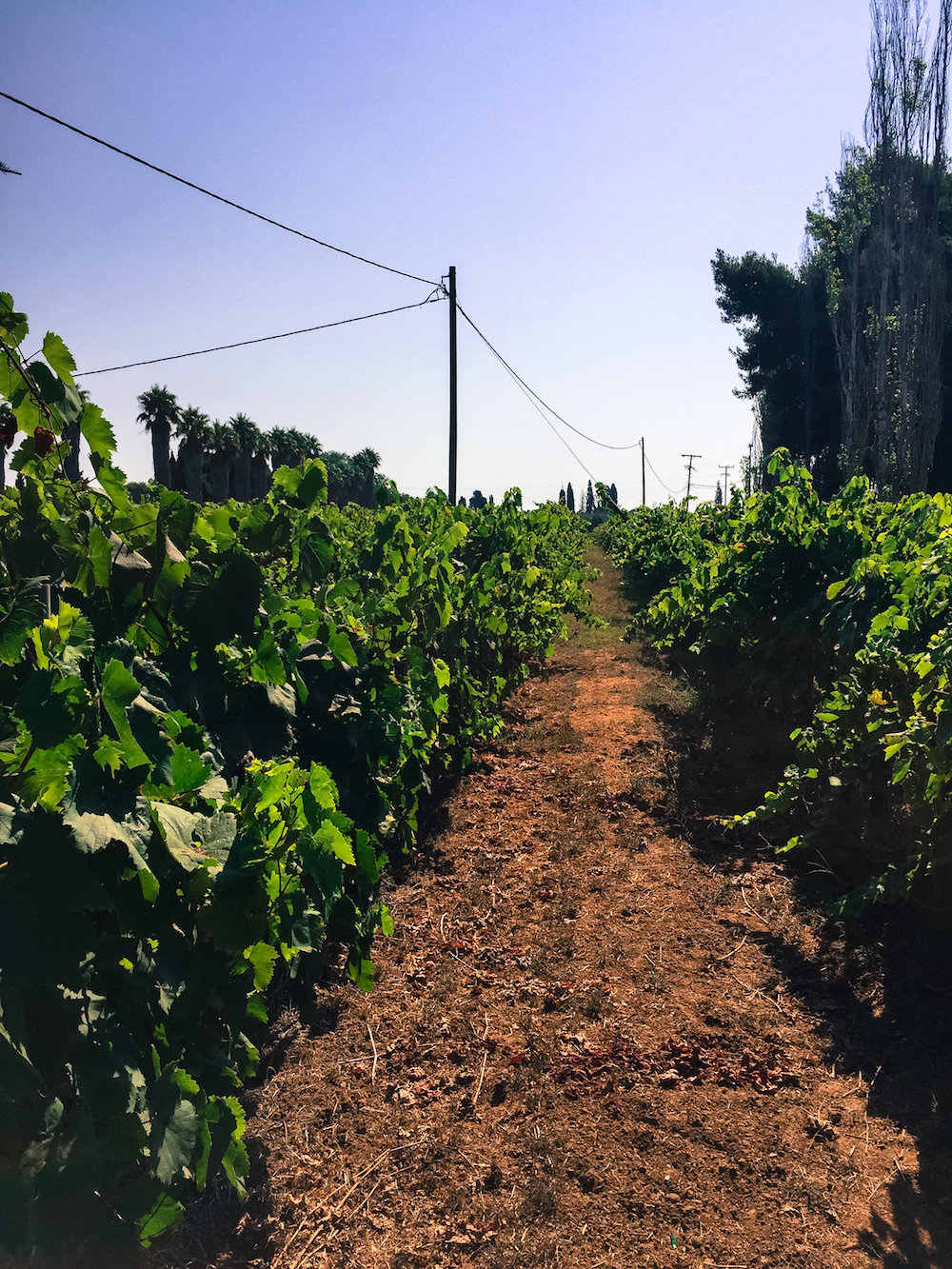
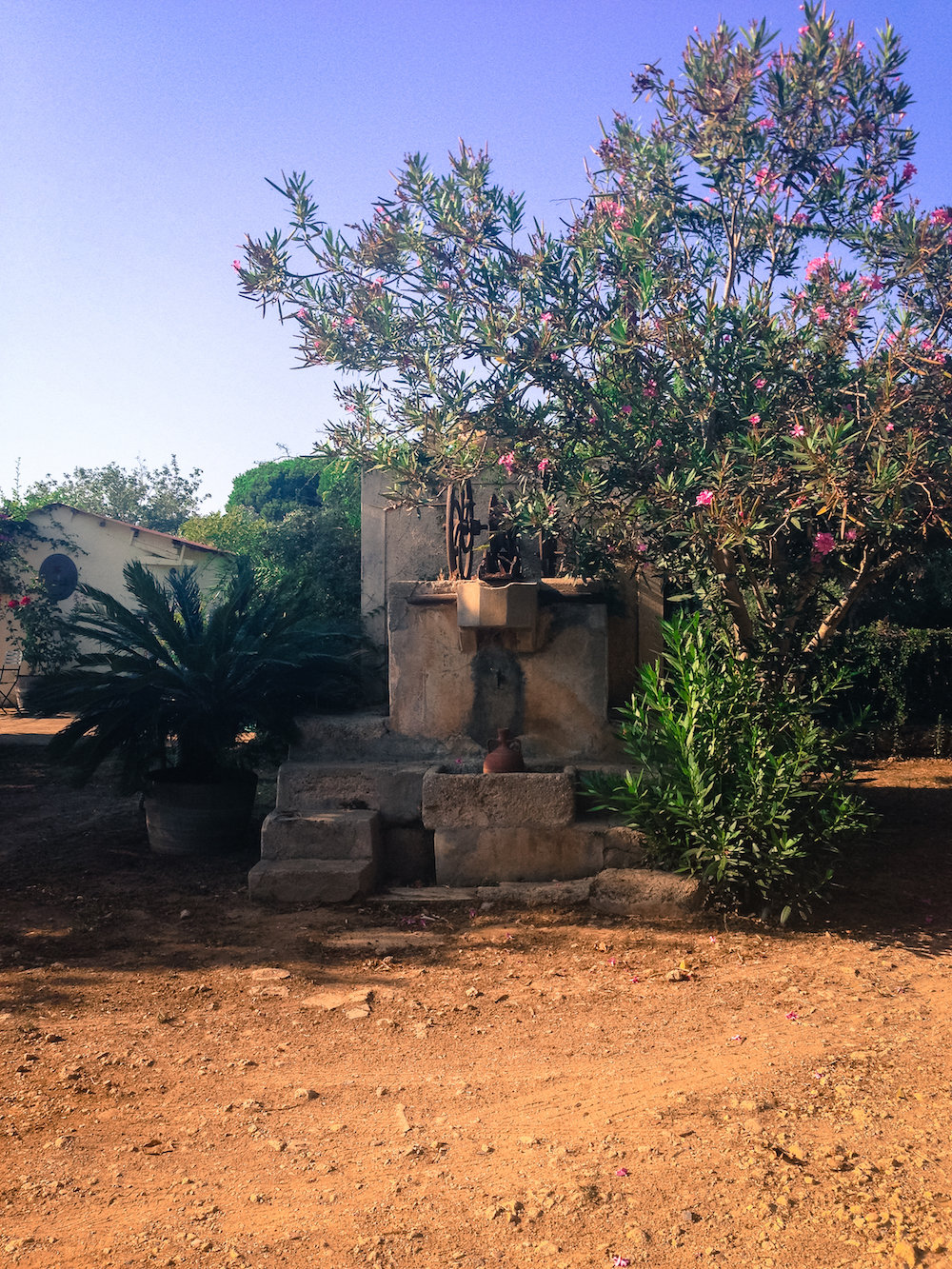
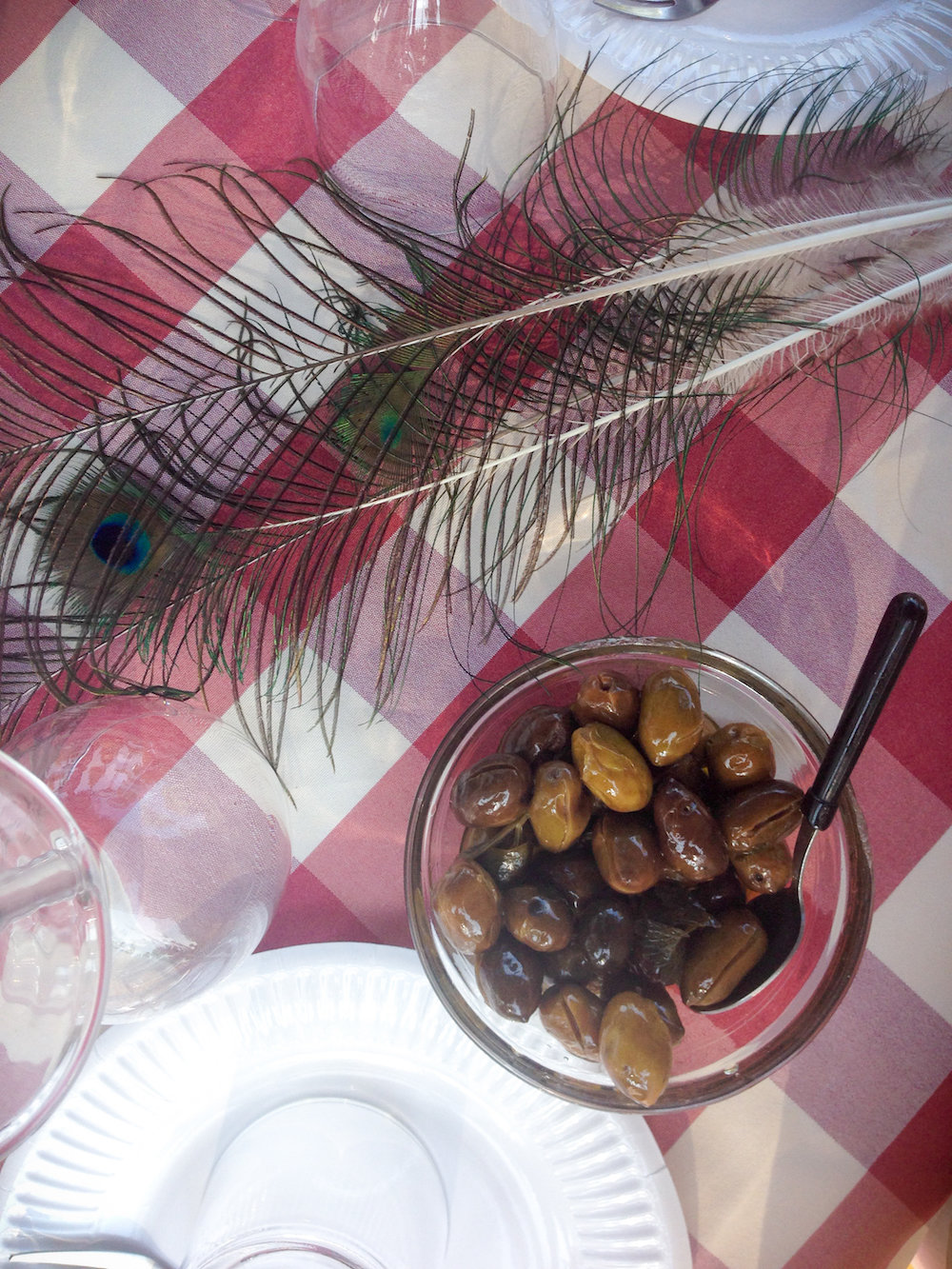
After he had waved goodbye, we took our glasses and went for a walk through the vineyards. The vines – Refosco grapes mostly – were nearly ready for harvest, and the plants looked lush in contrast with the sandy ground. We passed beneath a trellis not yet overgrown with roses, bushy pines, and a pepper tree whose leaves, crushed between our fingers, smelled like damp peppercorns. In the distance stood a row of shaggy-headed palm trees like irreverent sentinels, and further out was the sea – a bright blue washed in shades of green.
I won’t say it was the wine – but we were feeling open under that clear, blue sky. The heat had made us languid, our thoughts spooling slowly into words. What a special thing, we felt, to be with family in foreign places, to share new sights and experiences, especially when we all lived our daily lives so far apart. For us, home wasn’t just any one place, a house or town – for us, home was who we were together. The roof above our head made of memories like these.
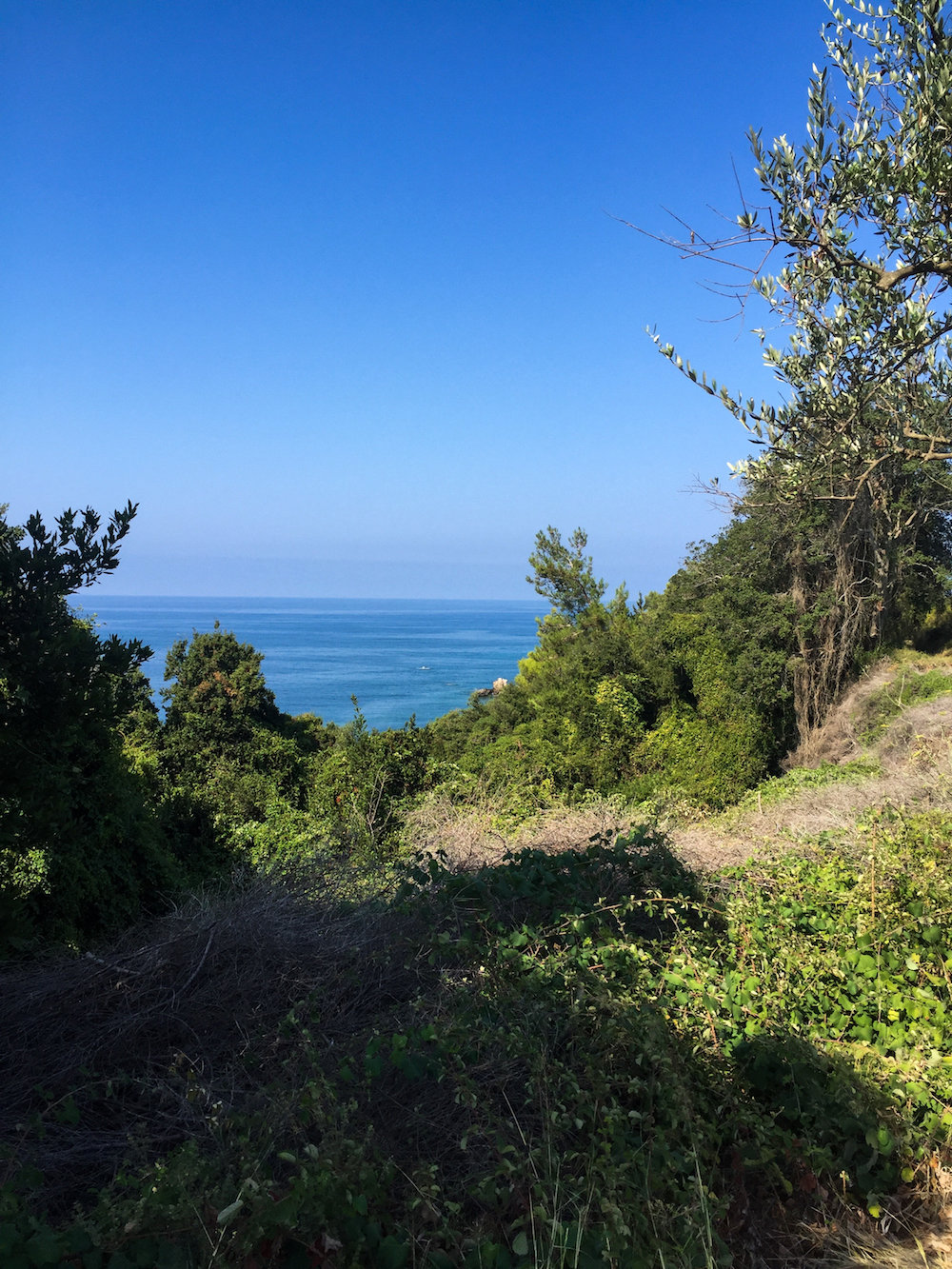

Inside the shop, we met Christos again and spoke once more of futures and pasts, of the soul’s poetry, true happiness, and family. How unexpected, to find a philosopher-poet on a short vineyard tour in Greece, how beautiful to share a conversation more moving than the indifferent small talk of people you’ll soon forget. He showed us pictures of his ancestors, the ones who’d first raked the dry earth and coaxed it to be fertile. For him, home meant the burnished roots in the soil, the cracked and plastered buildings, the cool cellar stocked with barrels, shrieking peacocks, and golden oil pressed between stacks of burlap cloth.
Back on the bus, we became boat people again, counted and accounted for. But for a brief moment, we had been only people – sharing conversation and wine, letting the dust kick up beneath our feet. It was a gift, and before we left, we were already longing to return.
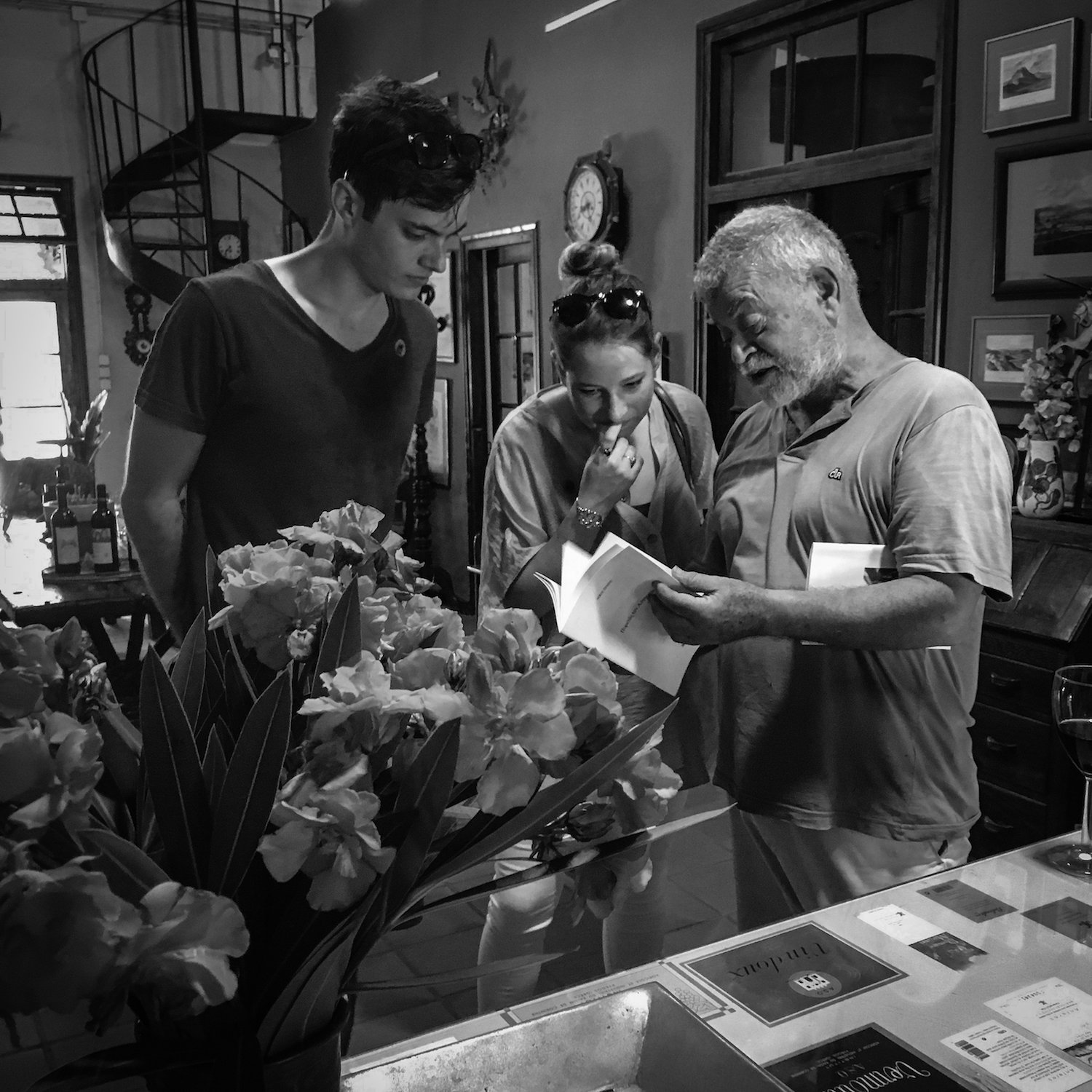


This post brings back vivid memories of my own visit here, Lyz.